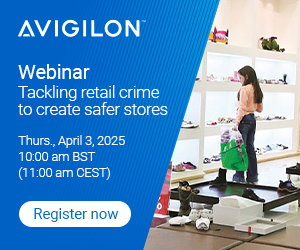INDUSTRY FOCUS
Business disruption that interrupts business disruption
If the disruption to business caused by the Coronavirus pandemic has taught us anything, it is that disruption in itself is not always the negative force.
Rather like a vaccine, it contains elements of the virus to help protect the corporate immune systems of companies that can adapt to change.
In fact, that disruption is often seen as a necessary evil that highlights existing weaknesses in processes and protocols that drive inefficiencies and makes ever-curious humans question their approach to the existential questions faced by business and help search for ever-better solutions.
Prior to the health crisis, Internet-enabled ‘disruptors’ in business such as Amazon and Uber have impacted traditional business models, but their activities have forced their competitors to adapt to survive. Now it is equally argued that COVID-19 and the closure of retail stores has accelerated the move to online shopping which has resulted in a Darwinian cull of brands and a race to embrace new processes by the surviving businesses who are now ever-hungry to discover post-pandemic solutions that allow them to compete on a level playing field.
It is testament to the creativity of these businesses and their suppliers, many of whom have also had to furlough staff during the pandemic, who have found their own disruptive technologies to counter the wider societal disruption so that they have a business to return to once restrictions are lifted.
One such company that has flexed its multi-layered offerings to the prevailing wind of the pandemic is Retail & Asset Solutions (RAS), a specialist outsourced stocktaking, merchandising and supply chain auditing services provider.
Disruption of its traditional stocktaking taskforce model, whereby teams of hundreds of counters are delivered to stores – the business has a fleet of 70 buses to transport personnel in for counts – have been dramatically cut back as a result of store closures due to the pandemic, but the dynamic modelling of the business allows it to re-deploy personnel into other areas of expertise.
RAS, which is no stranger to innovative business disruption of its own market by being the first to introduce barcode scanning, has switched much of its COVID focus towards merchandising ‘essential’ stores such as supermarkets which saw products fly off the shelves at store and DC level as a result of increased demand on customer delivery at store level, home delivery and click and collect, all of which impacted on shelf availability and product traceability in the supply chain.
The business, a signatory of the Drop and Drive Work Group and pioneers of the Good Faith Receiving (GFR) protocol which is underpinned by the Grocery Supply Chain Code of Practice, both of which ensure suppliers are remunerated in a timely fashion, is the only end-to-end provider of the service in the auditing sector. The service has participated towards a 23-point improvement in payment delay reduction over the last seven years for many suppliers – from 35 per cent in 2014 to 12 per cent in 2020.
“We have a multi-skilled taskforce dedicated to stock management to make sure that it keeps moving as quickly through the system as possible and to this effect we can respond to the changing demands in store or DC whether its merchandising or ensuring that there is enough sanitiser at the front desk,” said Graham Parker, Sales and Accounts Director at RAS.
“Consistency has been a big part of our role during the lockdown where our teams have become an extension of the essential workforce in the supermarkets and DIY while the apparel stores have been closed.”
However, he said, the pandemic disruption has focussed minds and there is a growing interest in greater inventory integrity utilising RFID as issues around managing online sales and the stock returns mechanism have manifested themselves during the lockdown.
“We are working on a number of trials and proof of concept projects with early adopter retailers. We have a turn key solution and by operating as a conduit between the hardware, software and mobilisation we are helping retailers to not only survive, but thrive in the pandemic.
This is an area where there will be dramatic changes in apparel where counts can be carried out quickly by fewer people, and keeping stock file accuracy up to date can drive a shift towards different delivery models. There is also the issue of putting in place mechanisms for managing the 30-40 per cent returns – how do you manage this process through tracking, quarantining and getting them back on the shelves? How do you optimise this whole process?
In the supply chain, our technology is well positioned to manage stock file accuracy across a multitude of product ranges, including fresh and frozen merchandise, taking samples at every stage of the supply chain to generate error rate forecasts that can be extrapolated over a 12-month period so that problems can be measured and managed ahead of them becoming larger availability challenges.”
Another business that has adapted is The Keyholding Company, a technology-enabled security services provider that is also the UK’s market leader in alarm response services, whose model relied upon traditional callouts to investigate and report break-ins on behalf of retail businesses as well as deal with errant false activations. As the name suggests, this model depended upon the physical presence of keys held by trusted personnel.
But as part of a major disruption of its own business model, it has introduced Smart Access, a brand-new cloud-based smart lock solution for businesses, positioned to completely revolutionise professional keyholding for security managers, facility managers, and risk management professionals.
According to The Keyholding Company, which also operates across the energy and education markets, Smart Access aims to disrupt the traditional keyholding model for businesses by removing the need for mechanical keys and saving clients up to 86 per cent on their key management and access services costs.
“Change is inevitable, and we must be willing to disrupt our own industry with progressive solutions,” said CEO, Charlie Gordon Lennox, who sees the technology as an essential next step for the industry, even if it challenges some of the company’s existing sources of revenue.
“We always try to be two steps ahead and the introduction of Smart Access is a calculated risk, but we strongly believe it is the future of keyholding as it provides the most value to our clients, which will ultimately result in growth to our business,” he added.
To achieve this it uses cloud-enabled smart locks, alongside a mobile key app, to replace the need for a professional keyholder.
Now access rights are managed through the company’s well-established Smart Security Platform, which connects clients with their operational systems for smarter job booking and data insight that allows users to interrogate access logs, understand trends, and pinpoint problem areas on their estate.
It allows businesses to save on key and lock replacements, ad-hoc third-party access costs, and temporary guarding fees, as well as use the platform to reduce administration time. Averaging these expenses, The Keyholding Company calculates that businesses could reduce their expenditure in these areas by up to 87 per cent, equating to thousands of pounds per year, per property.
The business also claims that the system, which has a faster installation time than traditional wired access control solutions, eliminates the threat of lost, transferred or duplicated keys and enables faster response times by removing the need for responders to detour and collect keys. This, in turn, will reduce carbon emissions by decreasing the number of access-related journeys.
Smart Access will launch with a choice of two different devices, a smart door lock and a wall-mounted smart key box, with other devices to follow shortly. Pricing starts at just £30 a month which includes installation and maintenance.
Compatible with almost any door type and covered by a host of security accreditations to ensure complete digital and physical security, Smart Access signals the next stage for professional keyholding.
Disruption in business is inevitable, whether it is from a global pandemic or dealing with new industry methods of delivery which subvert traditional trading models. However, as necessity is the mother of invention, being able to flex that model dynamically by having the right people and creative solutions in the right place at the right time is critical to ensuring that the positive disruption does not itself derail the business but instead provides the vital shot in the arm that vaccinates and future-proofs it against all manner of known and unknown disruption.







